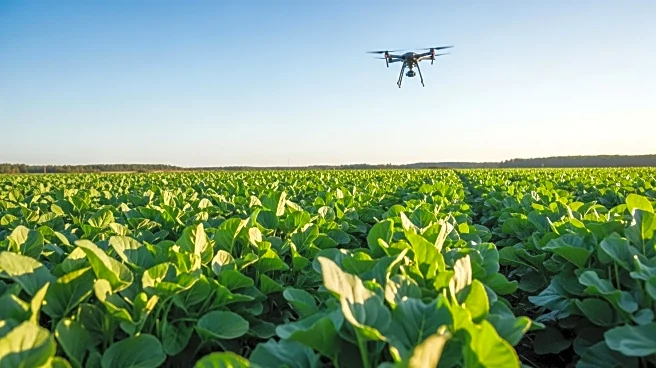What's Happening?
Professor Chinedum Uzoma Nwajiuba is a prominent Nigerian academic known for his contributions to agriculture, sustainability, and education. His career has been marked by efforts to integrate practical agricultural solutions with environmental sustainability and national development. Nwajiuba's academic journey began with a Bachelor of Science in Agriculture from the University of Nigeria, Nsukka, followed by a Master's degree in Agricultural Economics. He furthered his studies with a PhD in Agricultural Economics from the University of Hohenheim in Germany. His career includes roles such as Director of Academic Planning and Dean of the School of Postgraduate Studies at Imo State University, and Vice-Chancellor of Alex Ekwueme Federal University, Ndufu-Alike, Ebonyi State. Nwajiuba has also served as Executive Director of the Nigerian Environmental Study Action Team, contributing to environmental policy and sustainable practices.
Why It's Important?
Professor Nwajiuba's work is significant for its focus on linking education with real-world challenges, particularly in agriculture and sustainability. His leadership in academia has emphasized the importance of producing graduates equipped to address Nigeria's economic and ecological issues. By integrating technology with education and fostering research quality, Nwajiuba has influenced the development of policies that align educational outcomes with societal needs. His contributions to environmental policy and sustainable practices have had a lasting impact on national conversations about climate adaptation and agricultural innovation. Nwajiuba's mentorship has also shaped the next generation of Nigerian researchers, ensuring continued progress in these critical areas.
What's Next?
Professor Nwajiuba's ongoing involvement in research networks and policy development suggests continued contributions to sustainable development in Nigeria. His focus on producing socially responsible graduates capable of driving agricultural innovation and sustainability will likely influence future educational policies and practices. As environmental challenges persist, Nwajiuba's expertise and leadership may play a crucial role in shaping national strategies for climate adaptation and sustainable agriculture.
Beyond the Headlines
Nwajiuba's career highlights the ethical and cultural dimensions of education as a tool for societal problem-solving. His approach to integrating academic theories with practical solutions underscores the importance of education in driving national development. The long-term impact of his work may include shifts in how Nigerian universities approach sustainability and the role of education in addressing pressing developmental challenges.











